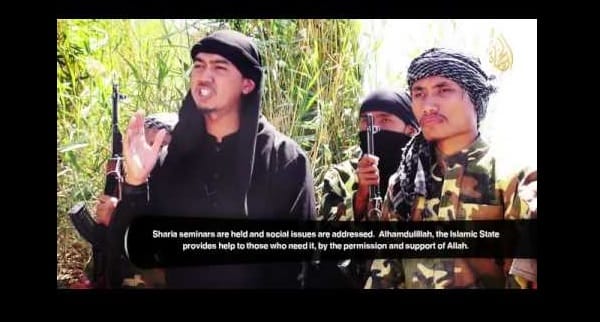The sale of Islamic State (IS) flags in Singapore may simply be an isolated incident. But it is a reminder that the conflict in Iraq and Syria has real implications for our region. There are IS supporters in Southeast Asia with the long-term goal of establishing a Southeast Asian caliphate spanning Malaysia, Indonesia and Singapore. Last month, Indonesian security forces were on high alert following a bombing threat against Borobudur, an ancient Buddhist temple and World Heritage Site. In August, Malaysian officials also announced the arrest of 19 Malaysians that were planning terrorist bombings in Kuala Lumpur.
Over the past few years, Southeast Asian authorities have been able to respond effectively to terrorist threats in the region; for instance, Indonesia’s Detachment 88 has been successful in reducing the influence of the Jemaah Islamiyah (JI) network. But the success of IS may galvanise Southeast Asian extremist groups. Last month, the Philippine militant group Abu Sayyaf released a video pledging support for IS. In addition, there is also the prospect of battle-hardened IS fighters returning from the Middle East to Southeast Asia. In August, Singapore Minister of Defence Ng Eng Hen warned that the possibility of such returnees committing terrorist acts “is no longer fiction”.
Estimates of how many Southeast Asian citizens are fighting for IS in the Middle East vary greatly. But even the most conservative figures say over 100 people from ASEAN countries are supporting IS in Syria and Iraq, while others believe hundreds from Southeast Asian have joined the caliphate, mostly from Indonesia and Malaysia.
No easy answers
Some 40 countries have responded to US President Barack Obama’s call to form a coalition against IS, with governments endorsing airstrikes in Syria. But even as the international community moves to combat IS militarily in the Middle East, Southeast Asian governments need to consider how to deal with support for IS among their own citizens.
Indonesia has pledged to block online access to pro-IS videos and other material, and has warned than Indonesians fighting for IS could be stripped of their citizenship. Malaysia is already detaining would-be terrorists under its internal security laws. But threats of detention and loss of citizenship will not be enough to deter the most radical militants.
Greater regional cooperation is critical. Currently, ASEAN is aiming to form an ASEAN Community by 2015, including the ASEAN Political-Security Community (APSC) as one of the plan’s three pillars. ASEAN also hosts multilateral meetings that bring together countries from across the Asia-Pacific, including the ASEAN Regional Forum (ARF) and ASEAN Defence Ministers Meeting Plus (ADMM+). These platforms could be further strengthened in the years ahead, as countries recognise the growing need to share information and collaborate against terrorism in Asia.
However, the battle to counter extremism is not just a legal or security problem – it is an ideological challenge. Although IS has committed gruesome acts of violence against journalists and persecuted Shia Muslims in Iraq and Syria, the group claims to exemplify core Islamic values. The emblem on the IS flag is the Shahadah – the Islamic Creed, one of the Five Pillars of Islam, a powerful symbol to Muslims. To combat the appeal of IS, communities in Asia must actively be encouraged to reject them as a legitimate group. Beyond government-to-government exchanges, ASEAN’s integration plans for 2015 and beyond need to consider how the grouping can promote a true sense of regional, transnational community, with mutual respect for people of different beliefs and ethnicities.
Sources:
Rise of Islamic State in Southeast Asia [Al Jazeera, 1 Sep 2014]
Malaysia militants aimed to create Islamic state across S-E Asia, including Singapore [AsiaOne (AFP), 19 Aug 2014]
Does Islamic State ideology threaten Indonesia? [BBC News, 11 Aug 2014]
Photo Credit: Abu Muhammad al-Indonesi speaking and pledging support to The Islamic State, Syria Focus, Youtube




